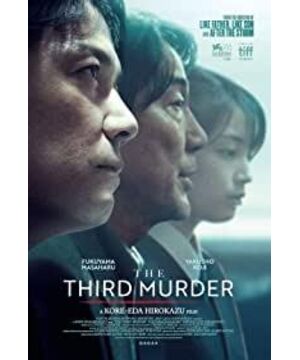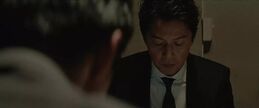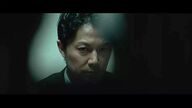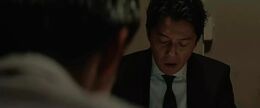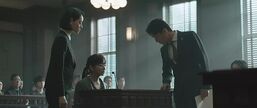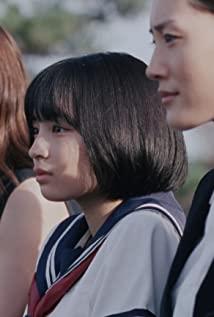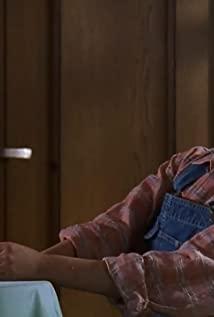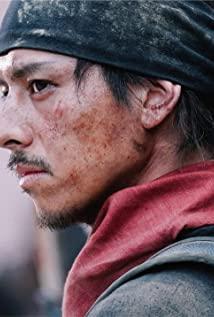I admit that I wanted to watch it at first because of the unanimous negative comments and hot comments in the vote circle, "a failed attempt" and "pulling Hirokazu Koreeda down the altar" aroused my strong curiosity. When I watched it, I found that the film is not only not dull, but also has many climaxes and turns and turns. Since the film is mainly developed from the perspective of the male protagonist (lawyer), when I thought I had guessed the truth, I finally found out that I Just like the male protagonist, he fell into the trap of "trial". This is obviously a god-level film that distinguishes between Hirokazu Koreeda and ordinary directors.
Maybe the reason why he is criticized (I guess) is the anti-traditional suspense film narrative, like fireworks in the day, Blade Runner, etc., using "literary" techniques to tell a "commercial" story, so many people feel that It was Hirokazu-eda who tried to discuss the profound meaning without even telling the story clearly. However, if you understand it, you will understand that this story does not need and should not have the so-called truth.
Next, I want to focus on analyzing the text of the movie. There are many spoilers, but due to limited memory, the plot may be biased.
At the beginning of the movie, it is the scene where the suspect Misumi kills. Then he was arrested. He was a prisoner with a previous homicide. Although there were no witnesses that night, he quickly confessed to the crime charged by the prosecutor: homicide and robbery. Then the lawyer played by Masaharu Fukuyama took over the case from another lawyer and defended Misumi. Since Sanyu has admitted the charges, it is difficult to commute the sentence (from the death penalty to life), so Fukuyama has no choice but to advocate the crime of "murdering and stealing", so that he does not kill for money, but kills and steals money by the way because of hatred. Here is Hirokazu Kore-eda, borrowing the mouth of a female lawyer, to throw out the first question about the law: It is also murder, why is vendetta more worthy of forgiveness than killing for money?
Then, when Fukuyama and his assistant lawyer were looking for Sanyu's motive for the murder, they found that Sanyu was not a violent person, and he did not have any deep relationship with the victim, his boss. They went to visit the town where Sanyu had murdered for the first time. The policeman who arrested him said that he had killed two loan sharks and set fire to their bodies 30 years ago. The result was that he was quickly caught and was on trial. During the period, he changed his confession many times, and he usually doesn't like to complain. Everyone couldn't figure out why he suddenly killed the two loan sharks, so no one knew the real motive of Sanyu, but in order to close the case as soon as possible, the judge designated the case as a vendetta. , let Sanyu die. The old police officer interviewed said that every time he was arraigned at Sanyu, he accepted new suspicions and new accounts they raised, and he was like an "empty container".
After returning from the visit, Fukuyama went to see Sanyu again and asked him why he wanted to kill people he didn't hate. Sanyu gave the answer: some people don't deserve to live in this world. The lawyer asked back: So you use this method (killing people) to solve this problem? Sanyu asked again: Didn't you use this method to solve it? (referring to the death penalty)
Because after looking at it, we will find that whether lawyers, prosecutors or judges, everyone does not care what the truth of the case is. They only focus on how to maximize their own interests in this trial. Sentencing, defense lawyers persuaded the suspect to plead guilty in order to reduce the sentence. As a result, Sanyu suddenly wanted to revise his confession and refused to admit the murder, which led to the debate on the seriousness of the crime, which turned directly to the debate on whether or not the crime was serious. , execute the death penalty. After the verdict was pronounced, Hirokazu Kore-eda threw another question: Who has the power to decide the verdict? A person was sentenced to death and his life was forcibly terminated, but the sentence was pronounced by a group of people who didn't even know the truth. The law seems ridiculous at this moment. It has become a high-sounding tool for the public to judge anyone at will, just like the murder weapon in the hands of a murderer. Therefore, Misumi said that he envied the judge because "the judge is free to judge others", and the prisoner has to pay the price.
When Sanyu put forward the proposition that "some people don't deserve to live in this world", the young assistant lawyer immediately expressed strong opposition, and I think the first reaction of many viewers may be the same. But Sanyu immediately said excitedly about his wife and parents, who were all judged by fate and did not ask their own wishes. They are like people who don't deserve to live in the world, so God uses various methods to let them go. At this time, I began to vaguely understand the truth of the incident. Maybe it was because I was tricked by fate, so Sanyu also wanted to judge others for no reason, a wicked loan shark, a black-hearted businessman (his boss) who faked food, and the four he raised. Beloved birds (loving birds symbolize yearning for freedom), brutally kill them and then pose as a crucifix to represent his judgment on them. Then sit back and wait for his arrest to be tried by the "court". (It can be seen from the fact that he did not escape after the murder and dealt with the rent in advance, etc., it can be seen that he has already accepted this absurd trial)
But soon the director asked me to overthrow my idea, and here I want to introduce the third key person - the daughter of the victim. At the beginning, Fukuyama first discovered that the girl had an unexpected close relationship with Sanyu. With the deepening of the investigation, we learned that the girl had been sexually assaulted by her father since she was 14 years old. The mother turned a blind eye to this and participated in the food together with her father. Forgery, after this incident was discovered by Sanyu, they transferred 500,000 yuan to cover Sanyu's mouth, but left evidence on the bank card. So Sanyu took advantage of this when he changed his confession for the first time, saying that the victim's wife bought the murder in order to defraud the insurance money. But from the girl's point of view, Sanyu killed his father for himself, so when buying a murderer and killing someone didn't work, she stood up and said she wanted to help Sanyu testify in court. But in this way, everyone knows how the little girl will be tortured. She has to recall the painful experience over and over again in front of everyone, and her past mistakes and lies will also be turned out for questioning. Sprinkle salt on her wound. So when Fukuyama told Sanyu about the girl's decision, Sanyu suddenly had to revise his confession that he did not kill, and admitted that the murder was all because the previous lawyer told him that the sentence could be reduced in this way. And Fukuyama, despite the dissuasion of others, helped Sanyu defend his innocence. He found the girl and asked her to deny Sanyu's murder of her father in court. The girl hesitated and was finally persuaded by Fukuyama. In fact, except for the girl, everyone knows that if they fight like this, they will lose the lawsuit. So on this rainy afternoon, this absurd trial began.
We are all too familiar with the dreary, damp afternoons of such unintentional work. All the "outsiders" in the court also wanted to finish get off work early and go home, so when the defendant proposed to revise the confession in court, the three parties immediately held a small meeting to reach an agreement, not to re-gather evidence according to the regular process, but Go straight to the trial, because everyone knows the result is the same. So when Fukuyama said sorry to the girl apologetically, the girl said disappointedly, "No one tells the truth in court." Defendants are fake, lawyers are fake, witnesses are fake, prosecutors convicted indiscriminately, and judges slapped life. Without truth, there is no justice.
Finally, the film ushered in the last turning point. When we, like lawyers, thought that Sanyu did this to protect the girl, Sanyu denied it. He had no need to lie at this point, so Fukuyama was shocked, and so was I! The last sentence Fukuyama said was: "So you are really a container". The three corners are just an empty container, and everyone thinks that what he is holding is what he holds out of his own interests or from his own standpoint. The prosecutor thought that he robbed and murdered, so he robbed and murdered. The judge decided the case with the quickest conclusion if he wanted to handle the case efficiently. The victim thought that he murdered to protect himself, and the defense lawyer projected his guilt towards his daughter on Sanyu. It was also because he owed his daughter that he made up for the girl as his own daughter, so he helped him finish the scene, but inadvertently gave him a death sentence. And what is the truth? Why did Sanyu kill? Is it for their own desires, for redemption, or for judgment? Nobody knows the answer. Even the screenwriter Hirokazu Kore-eda may not know, because everyone already has a truth in their hearts that they believe in. This truth may be true or false, just like the old lawyer's story of "the blind man touching the elephant", we can only touch a part of the truth, but take that part as the whole.
That's why I think the Chinese version of the poster is well done, "The death penalty you can't escape, the motive you can't find", fate will judge you, the end is already doomed, the truth is just an excuse for each other to seek; "It is not the truth of the case that is revealed, but the truth of the society that the director shows us.
Everyone completed the judgment of others in this story. It was Hirokazu Koreeda who completed his judgment of the society by making this film, and we as the audience interpret it and give it a score of 6.9, why not A trial?
View more about The Third Murder reviews


